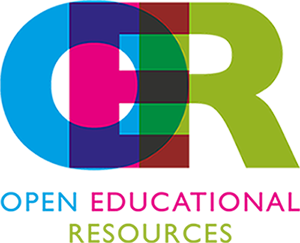
Presenter Biography
Kate Thornhill is digital scholarship project manager and technology instructor who works closely with faculty and graduate students engaged in digital humanities, social sciences, and educational technologies supporting digital pedagogy. Franny Gaede is the Head of Digital Scholarship Services and digital scholarship technology instructor who provides leadership and support for digital scholarship, digital collections, digital preservation, scholarly communication, digital pedagogy, library-led open access publishing, and oversees the management of UO Libraries Digital Research, Education, and Media Lab.
Start Date
5-17-2019 2:45 PM
End Date
5-17-2019 4:00 PM
Description
In February 2019, UO Libraries opened the new UO Libraries Digital Research, Education, and Media (DREAM) Lab to be a space for faculty and graduate students to learn new digital scholarship tools, methods, and techniques, data management and visualization, instructional design, accessibility, user experience, and assessment. With a strong campus appetite to develop Omeka-based digital humanities projects, Digital Scholarship Services (DSS) librarians designed its first DIY digital scholarship workshop series called Owning Your Omeka with intention to empower researchers and educators to make their own digital exhibits using Reclaim Hosting.
Between December 2018-February 2019, DSS librarians designed a three-part six-hour scaffolded workshop series to teach faculty and graduate students about the basics of web hosting, setting up Omeka Classic on Reclaim Hosting, and Curatescape, an Omeka theme and plugins framework for storytelling using geospatial locations. In addition to teaching Omeka and Reclaim Hosting technology requirements, librarians utilized constructivist teaching methodologies to guide interactive lesson activities; ACRL Information Literacy Framework and International Society for Technology in Education Standards to clearly articulate knowledge expectations and support lesson learning outcomes; Digital Library Federation’s Digital Library Pedagogy Group’s recommends for learner comprehension checks; technology intensive classroom management strategies; and an end of workshop teaching evaluation form to identify what learners liked, found unclear, desires for workshop changes, and what they could apply from the workshop in their research practice. After using these instruction methods, DSS librarians reflected on instruction practice modifying the series to improve learner technical pitfalls, classroom management and formative assessment strategies.
Persistent Identifier
https://archives.pdx.edu/ds/psu/39254
Owning Your Omeka: Teaching DIY Digital Scholarship through a Scaffolded Workshop Series
In February 2019, UO Libraries opened the new UO Libraries Digital Research, Education, and Media (DREAM) Lab to be a space for faculty and graduate students to learn new digital scholarship tools, methods, and techniques, data management and visualization, instructional design, accessibility, user experience, and assessment. With a strong campus appetite to develop Omeka-based digital humanities projects, Digital Scholarship Services (DSS) librarians designed its first DIY digital scholarship workshop series called Owning Your Omeka with intention to empower researchers and educators to make their own digital exhibits using Reclaim Hosting.
Between December 2018-February 2019, DSS librarians designed a three-part six-hour scaffolded workshop series to teach faculty and graduate students about the basics of web hosting, setting up Omeka Classic on Reclaim Hosting, and Curatescape, an Omeka theme and plugins framework for storytelling using geospatial locations. In addition to teaching Omeka and Reclaim Hosting technology requirements, librarians utilized constructivist teaching methodologies to guide interactive lesson activities; ACRL Information Literacy Framework and International Society for Technology in Education Standards to clearly articulate knowledge expectations and support lesson learning outcomes; Digital Library Federation’s Digital Library Pedagogy Group’s recommends for learner comprehension checks; technology intensive classroom management strategies; and an end of workshop teaching evaluation form to identify what learners liked, found unclear, desires for workshop changes, and what they could apply from the workshop in their research practice. After using these instruction methods, DSS librarians reflected on instruction practice modifying the series to improve learner technical pitfalls, classroom management and formative assessment strategies.

